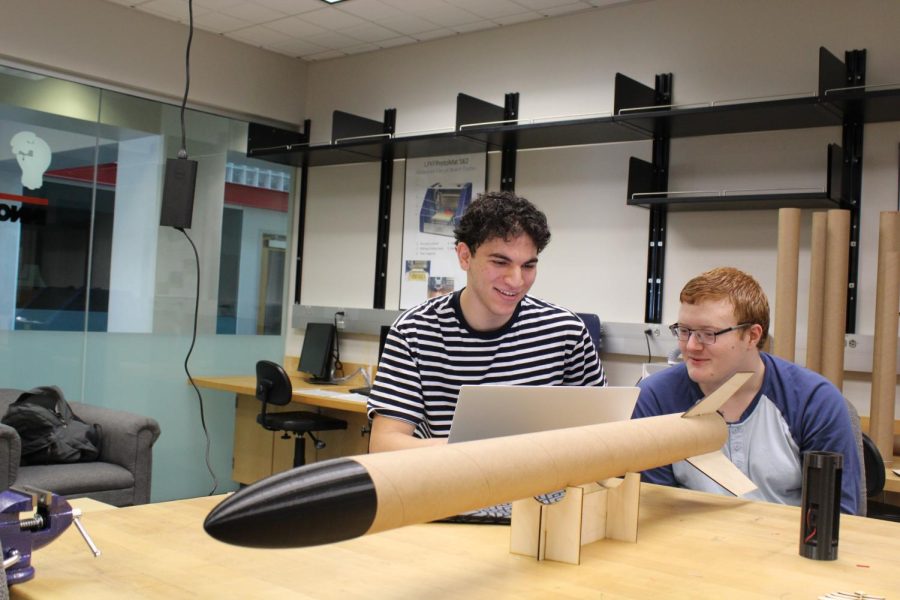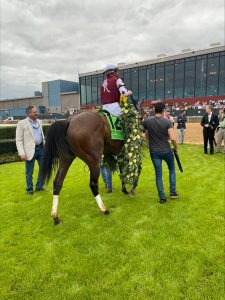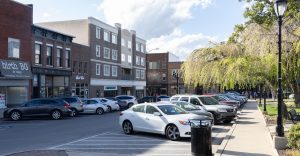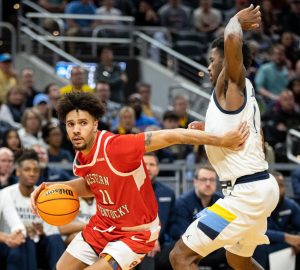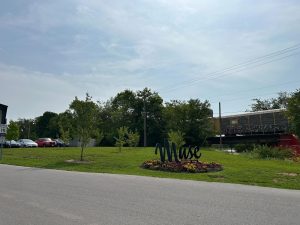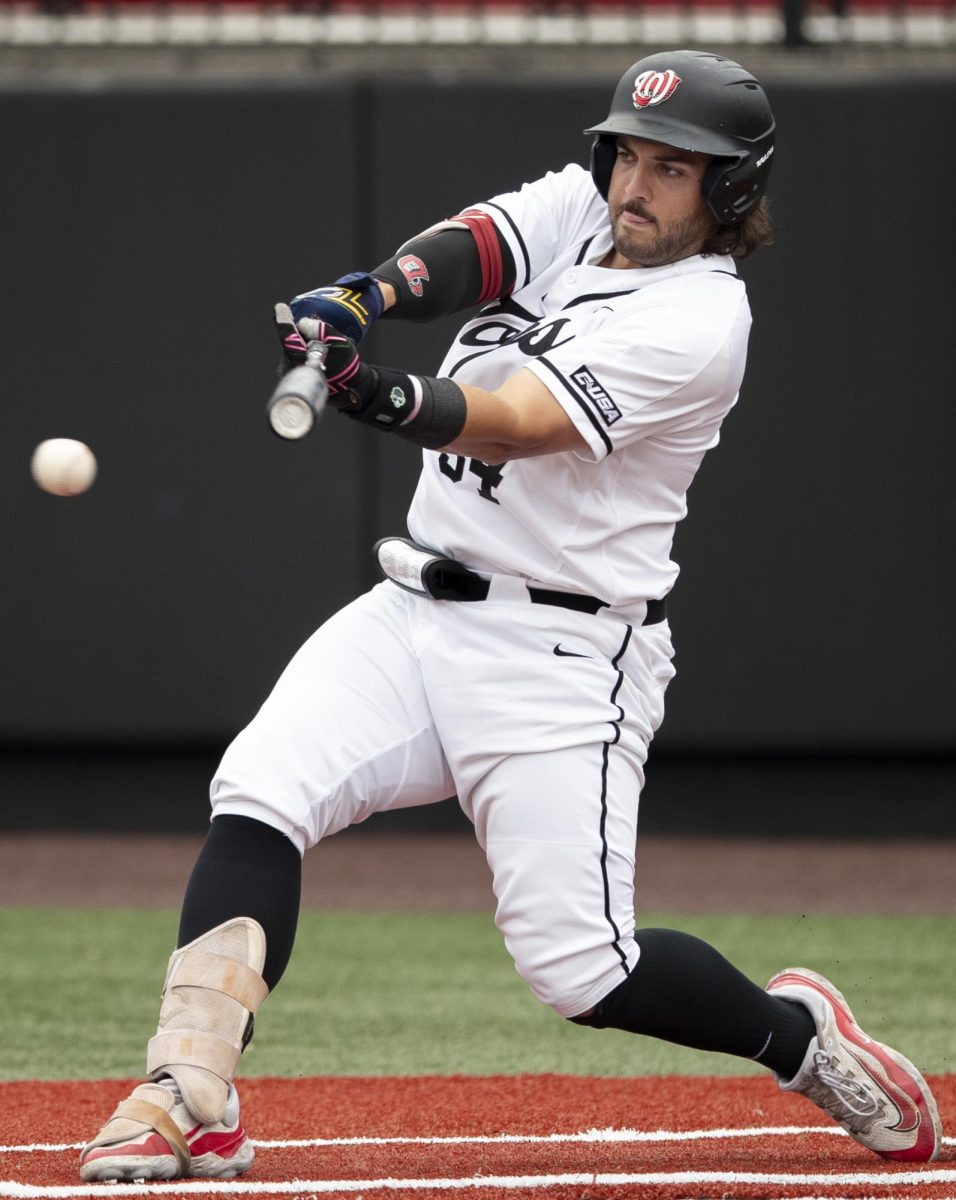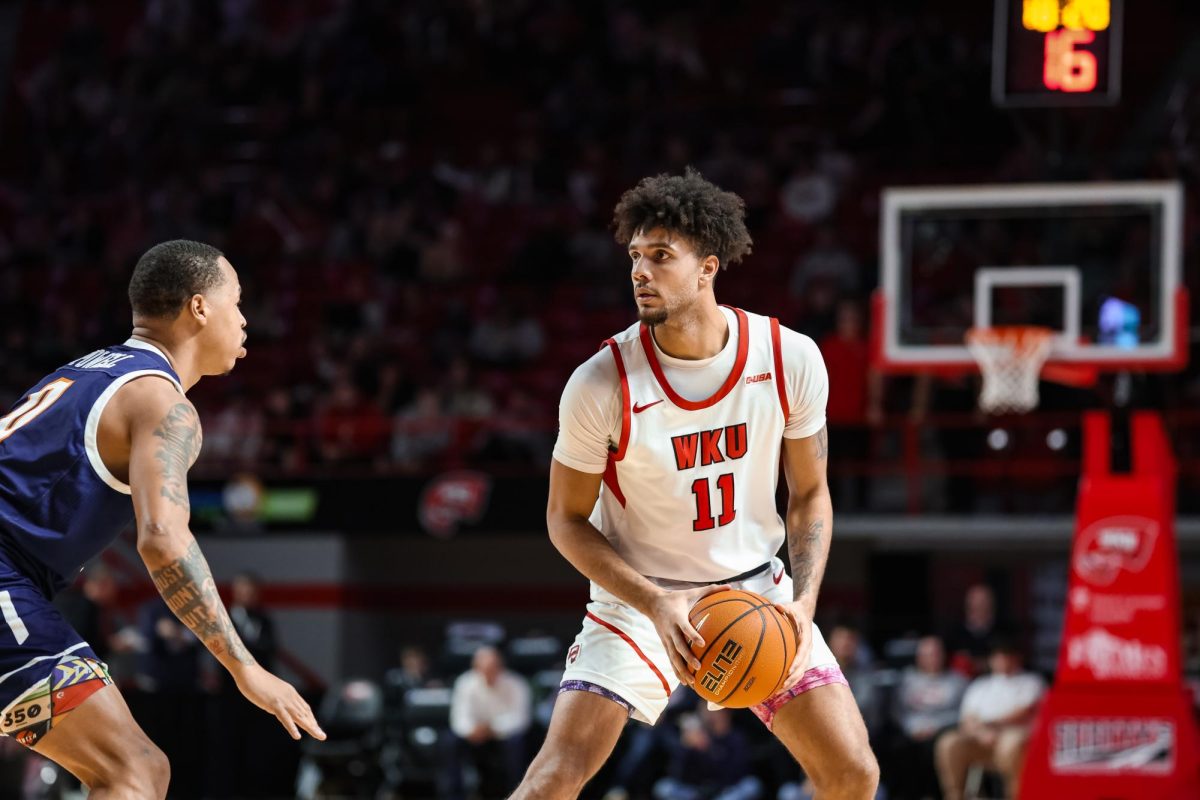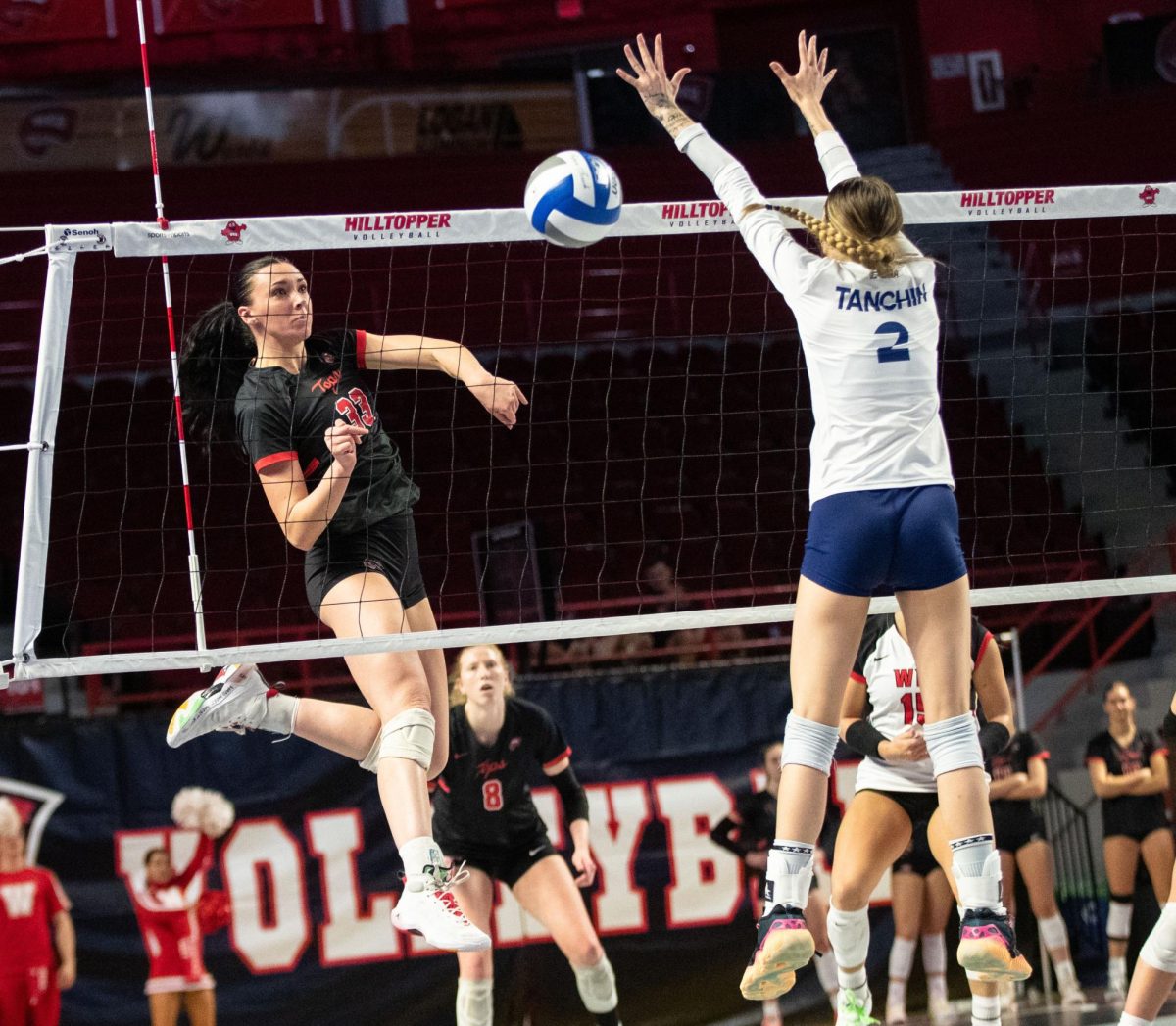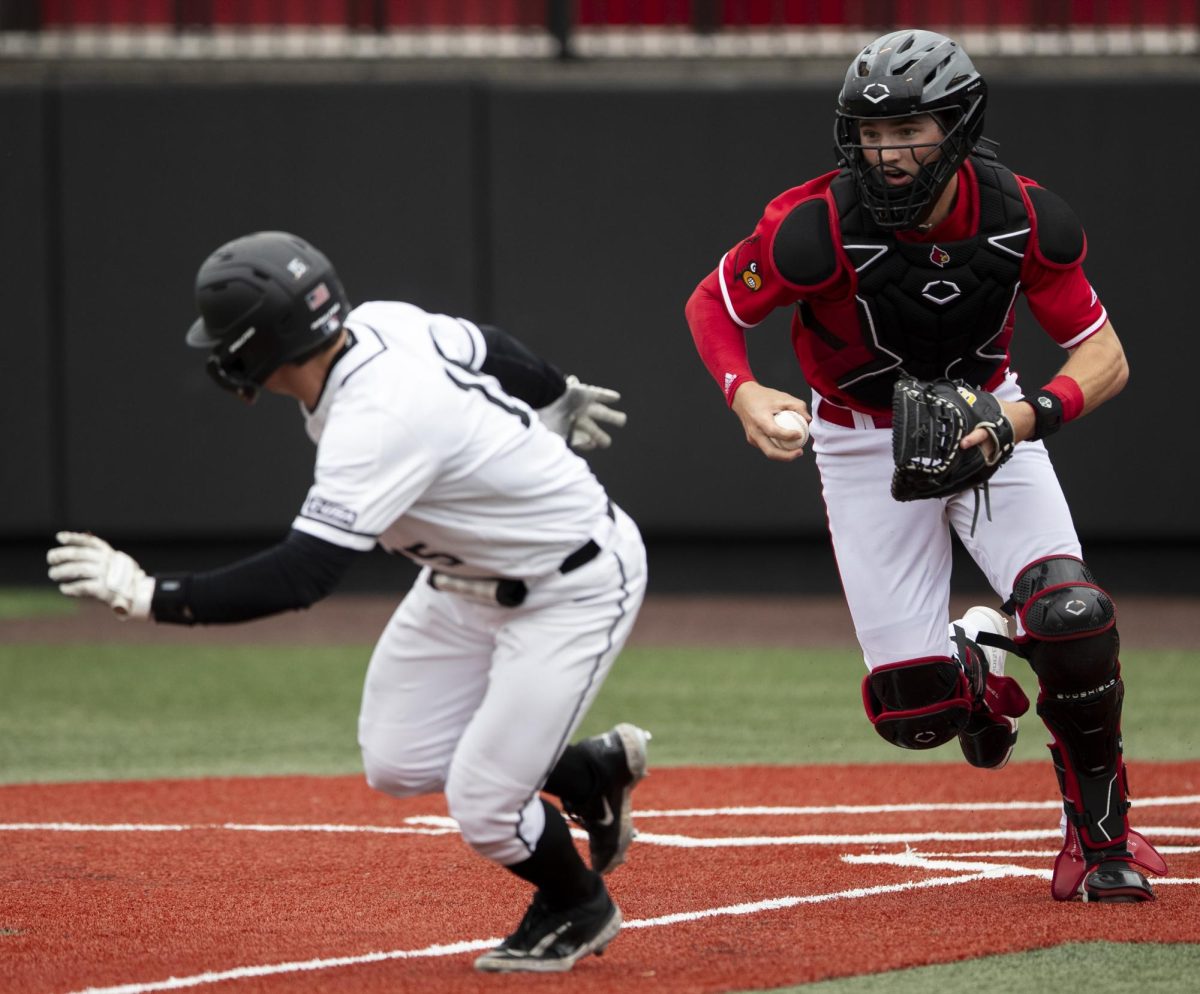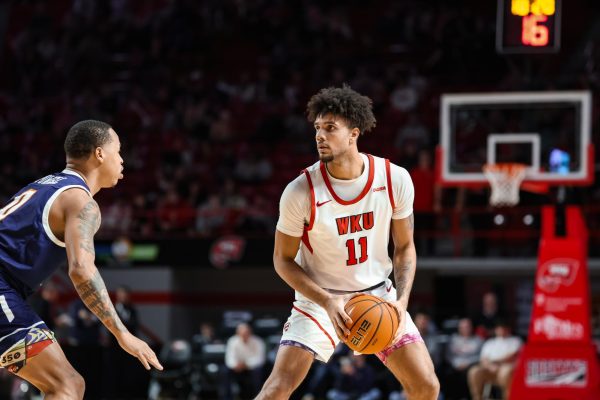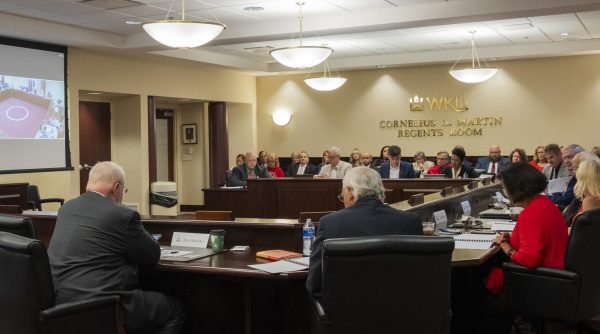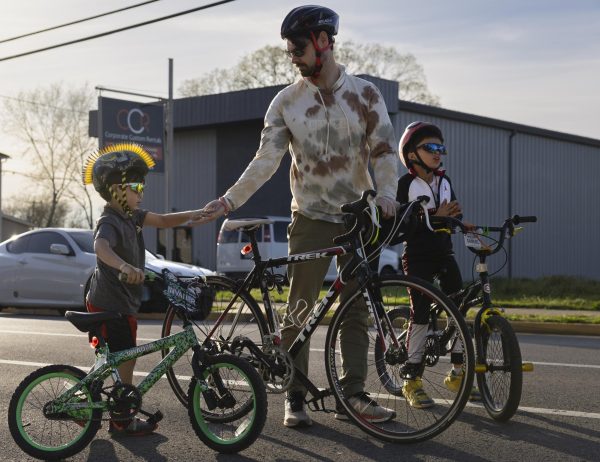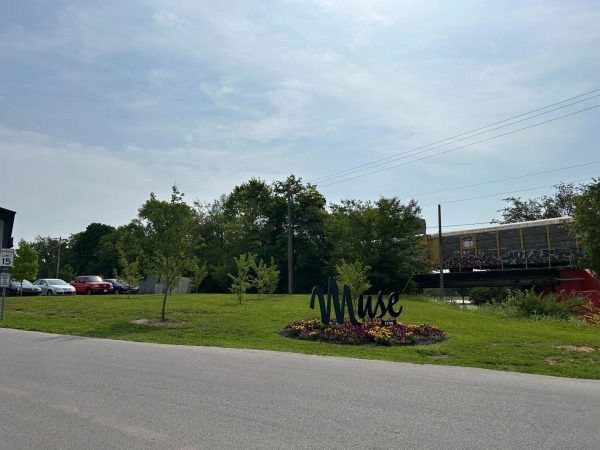Big Red Rocketry Association brings aerospace opportunities to campus
Omar Mansour, president of the Big Red Rocketry Association, and Alexander Bentley, a club member, view rocket simulations to prepare for an upcoming rocket launch.
June 13, 2023
Rocket prototypes cover tables in the WKU School of Engineering and Applied Sciences lab, and Omar Mansour works on his rocket set for launch this summer.
Mansour, a sophomore mechanical engineering major, describes himself as the “kid who never got out of the astronaut phase.” Within his interest in how machines like planes and spaceships fly, Mansour discovered his passion for rocketry.
He is the president of the Big Red Rocketry Association, an organization he created last September after he came to WKU.
“It was really something I wanted to pursue through college as well,” Mansour said. “So we started up this program to give students the opportunity to actually participate in this […] I really feel like some of the methods that we’re implementing here, our manufacturing methods, are actually some of the same ones that you see in these top level aerospace companies.”
Mansour saw that many students at WKU, himself included, had interests in rocketry and aerospace careers, but were faced with a lack of these programs.
“I think there’s not really a lot of opportunity, especially here in Kentucky,” Mansour said. “I know UK [University of Kentucky] has their own aerospace program, but Western, we really don’t, and there’s a lot of students with this niche and that interest but there’s really no place to fulfill this.”
In the future, Mansour hopes to work in the aerospace industry. He believes setting a foundation in college is vital, as it also brings together disciplines across STEM.
“Rocketry is one of the only disciplines where it’s super broad,” Mansour said. “You’re not only having engineers working on this. We have chemists and computer scientists, civil engineers and electrical engineers, everyone really has a role to play here. I think it’s really neat to be able to collaborate with other disciplines and work together on the same project.”
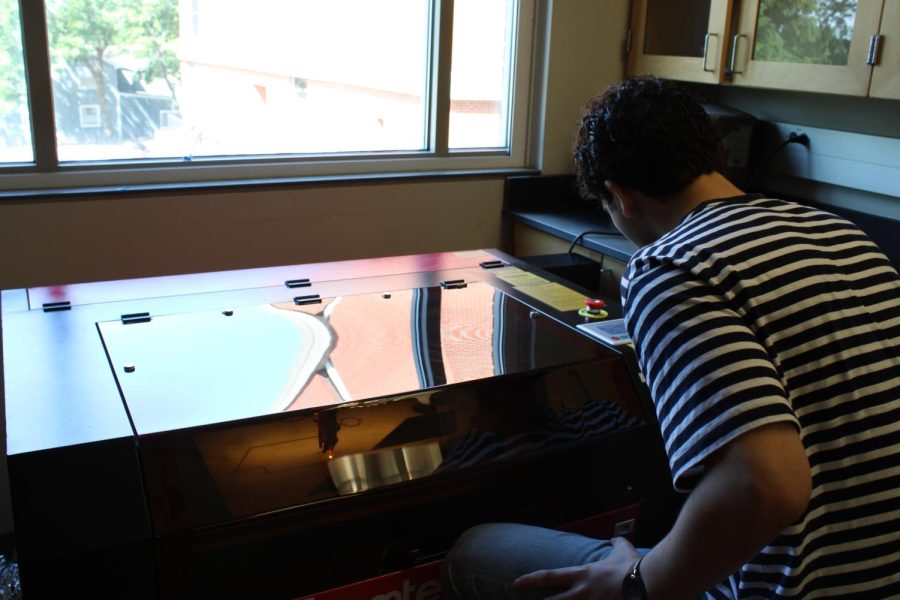
In building rockets, Mansour stresses the “responsible design process,” meaning club members don’t simply jump in to putting parts together.
“We don’t start out by just building the rocket, but what we do is we lay our foundation,” Mansour said. “So what are we trying to achieve with this rocket? What are our goals with this rocket? We like to do that first.”
The process for building rockets is to “simulate, design, build, test,” Mansour said. Rocket simulators are first used to test calculations, including potential rocket height, speed and center of gravity. These simulations create a base to then design, build and eventually test launch a rocket.
Students build these rockets for launch tests, which they must pass to gain a rocketry certification. There are three certification levels that students can take, with each test requiring rocket builds with more powerful motors and more complicated flying instructions.
“We’re using all these tools to not only make rockets that go up but rockets that could also come down,” Mansour said. “Because anybody can send up a rocket to 10,000 feet, but it takes someone who’s really an expert in the field to be able to make it come back down in one piece.”
The club is in partnership with the Bluegrass Rocketry Society of Kentucky, which hosts around three rocket launches each month at Elizabethtown and a site in Tennessee year round. The Big Red Rocketry Association has the opportunity to attend all of these launch windows, as WKU is between the two launch sites.
Alexander Bentley, a biochemistry and medical laboratory sciences major, is in charge of the chemistry aspects for the Big Red Rocketry Association. Being a member of the club has allowed him to explore chemistry in ways he hasn’t before.
“I do research for campus and then pretty much I’ve just fallen in love with chemistry even more,” Bentley said. “Every opportunity I’ve had to get more involved [I take], ever since he [Mansour] gave me the opportunity to make the fuel of something I never get to do.”
This summer, Bentley will complete his rocketry tier one certification. He is most interested in developing and implementing fuel for the rockets, which range from powders to liquids.
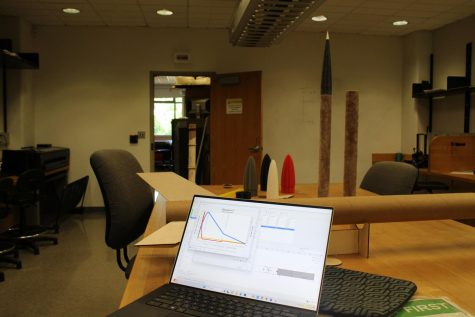
“I’m just in charge of getting it off the ground,” Bentley said. “That’s what chemistry does. I insert the propellants and all the fuels into the base. And once it gets into the air, he’s [Mansour] responsible for guiding and all the mechanisms to safely deploy it. I just have to ignite it.”
Mansour hopes that with the growth of the Big Red Rocketry Association, more WKU students will find their interests in aerospace and rocketry, and have the opportunity to pursue that interest.
“I really do hope we can expand upon the space field here at Western,” Mansour said. “I think there’s really a lot of students that maybe we don’t realize, but actually really do have an interest in this kind of thing. I would love to see more opportunities in this kind of realm.”
He believes there is more to being a member of the club than simply designing, building and launching rockets – it allows students to gain valuable interpersonal and professional skills.
“Really, I don’t think we’re just teaching students how to build rockets,” Mansour said. “We’re teaching them how to become better teammates, better students. We’re teaching them how to work together in these environments where really they’re not being exposed to that often.”
Editor-in-chief Alexandria Anderson can be reached at [email protected].


